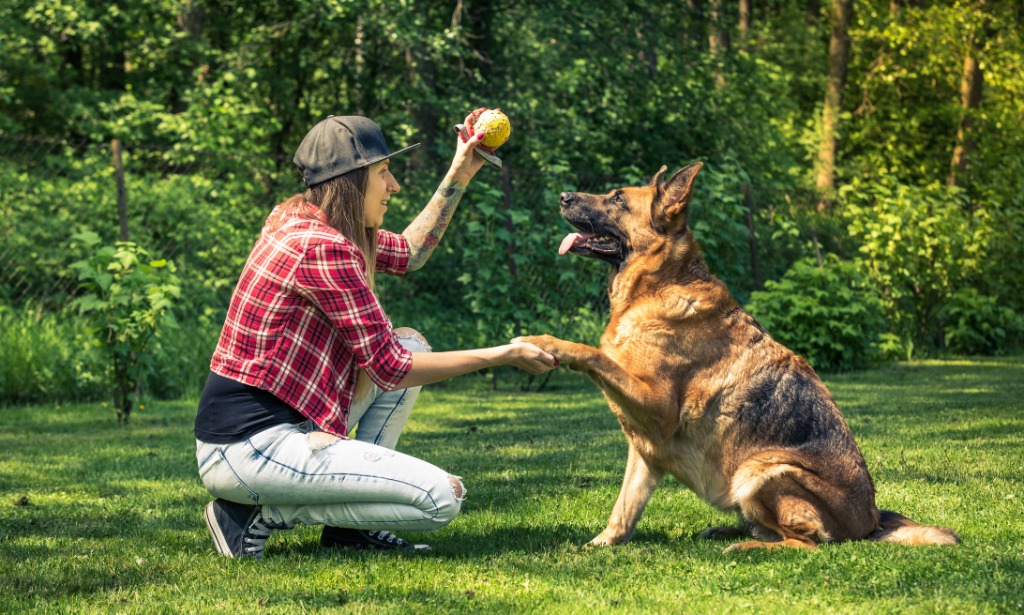Have you ever wondered who takes care of the animals at zoos, aquariums, and wildlife sanctuaries? Meet the animal care professionals, who dedicate their lives to ensuring the well-being of creatures great and small. These individuals are responsible for the daily care and maintenance of a wide range of species, from domestic pets to exotic wildlife. From feeding and cleaning, to providing medical care and monitoring behavior, animal care professionals play a critical role in maintaining the health and happiness of the animals in their care.
Dog Trainer
Dog trainers play an important role in shaping the behaviour and obedience of our furry friends. Imagine a scenario where you adopt a cute, rambunctious puppy, but as it grows into adulthood, it becomes aggressive and difficult to control. This is where a dog trainer steps in to help transform your pet into a well-behaved companion. From basic obedience commands to advanced training for working dogs, dog trainers use positive reinforcement techniques to encourage desirable behaviors and discourage unwanted ones.

What is the Average Annual Salary of 'Dog Trainer'?
$64,971

USA
£23,697

UK
Explore Career
Introduction
Dog training is an ancient and honorable profession that has evolved over thousands of years. It’s a unique and fulfilling career that offers endless opportunities for growth and learning. A dog trainer is someone who helps dogs and their owners communicate with each other more effectively. Whether it’s teaching a new puppy basic commands, helping an older dog overcome behavioral problems, or preparing a dog for competition, dog trainers play an important role in enhancing the bond between dogs and their owners.
Also known as
- Canine Trainer
- Dog Behaviorist
- Dog Obedience Trainer
Typical Job Responsibilities
- Evaluate dogs and their behavior
- Develop and implement training programs
- Teach basic obedience commands
- Address behavioral issues, such as aggression and anxiety
- Work with owners to address their training needs and goals
- Keep up to date with the latest training techniques and developments in the field
Standard Work Environment
Dog trainers typically work in a variety of environments, including training facilities, pet stores, kennels, and clients’ homes. They may work indoors or outdoors, depending on the training program. Work may be physically demanding, as trainers must be able to work with dogs of different sizes and temperaments and may be required to bend, kneel, and stand for long periods of time.
Work Schedule
The work schedule of a dog trainer varies depending on their place of employment and the training programs they offer. Some trainers work full-time, while others work part-time or on a freelance basis. Trainers may work during the day, evening, or weekends to accommodate the schedules of their clients.
Employers
- Pet Stores
- Kennels
- Training Facilities
- Animal Shelters
- Private Clients
Unions/Professional Organizations
Professional organizations for dog trainers, such as the Association of Professional Dog Trainers (APDT), offer a variety of resources and benefits, including continuing education opportunities, networking events, and access to a community of professionals in the field. These organizations also provide certification programs that help trainers build credibility and demonstrate their expertise to potential clients.
Workplace Challenges
- Managing client expectations and communication
- Dealing with difficult or aggressive dogs
- Maintaining a physically demanding work schedule
- Staying up to date with the latest training techniques and trends
- Marketing and promoting their services
Projected Career Map
The career path of a dog trainer can vary greatly, depending on the individual’s goals and interests. Some trainers may choose to work for a single employer, while others may prefer to work independently. With experience and a strong reputation, dog trainers may be able to build a successful and thriving business, attracting clients from a wide range of backgrounds and with a wide range of training needs.
Job Prospects
The demand for dog trainers is expected to grow in the coming years, driven by increasing pet ownership and an increased focus on the welfare of animals. As the pet industry continues to grow, more trainers will be needed to meet the demand for quality training services.
Beneficial Professional Development
Continuing education is a crucial aspect of professional development for dog trainers. Whether it’s attending workshops, enrolling in online courses, or participating in certification programs, dog trainers must stay up to date with the latest techniques and trends in the field. This not only helps them provide better services to their clients but also helps them maintain a competitive edge in the job market.
Conclusion
A career as a dog trainer can be both challenging and rewarding. It requires patience, dedication, and a love for animals. With the increasing popularity of pet ownership, the demand for skilled dog trainers is expected to continue growing in the coming years.
Advice from the Wise
Be the most interesting human your dog has ever met.
Holland Codes, people in this career generally possess the following traits
Realistic
Investigative
Artistic
Social
Enterprising
Conventional
United Nations' Sustainable Development Goals that this career profile addresses





























































 ">
">